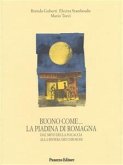April 1775 -- King George's troops advance on Concord, Massachusetts, prompting Paul Revere's midnight ride that sounded the alarm "The British are coming, the British are coming." The subsequent battle of Concord, famous for being the "shot heard round the world," would mark the unofficial beginning of the American Revolution.May 1776 -- After nearly a year of trying to work our their differences with England, the colonies again send delegates to the Second Continental Congress.June 1776 -- Admitting that their efforts were hopeless, a committee was formed to compose the formal Declaration of Iindependence. Headed by Thomas Jefferson, the committee also included John Adams, Benjamin Franklin, Philip Livingston and Roger Sherman.June 28, 1776 -- Jefferson presents the first draft of the declaration to congress.July 4, 1776 -- After various changes to Jefferson's original draft, a vote was taken late in the afternoon of July 4th. Of the 13 colonies, 9 voted in favor of the Declaration; 2, Pennsylvania and South Carolina voted No; Delaware was undecided and New York abstained.John Hancock, President of the Continental Congress, was the first to sign the Declaration of Independence. It is said that he signed his name "with a great flourish" so
Bitte wählen Sie Ihr Anliegen aus.
Rechnungen
Retourenschein anfordern
Bestellstatus
Storno









